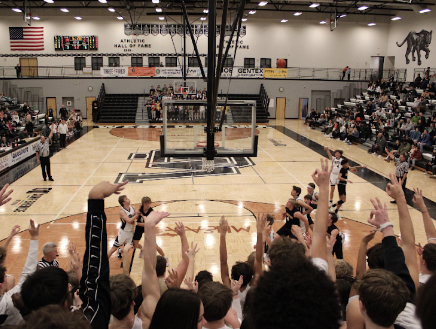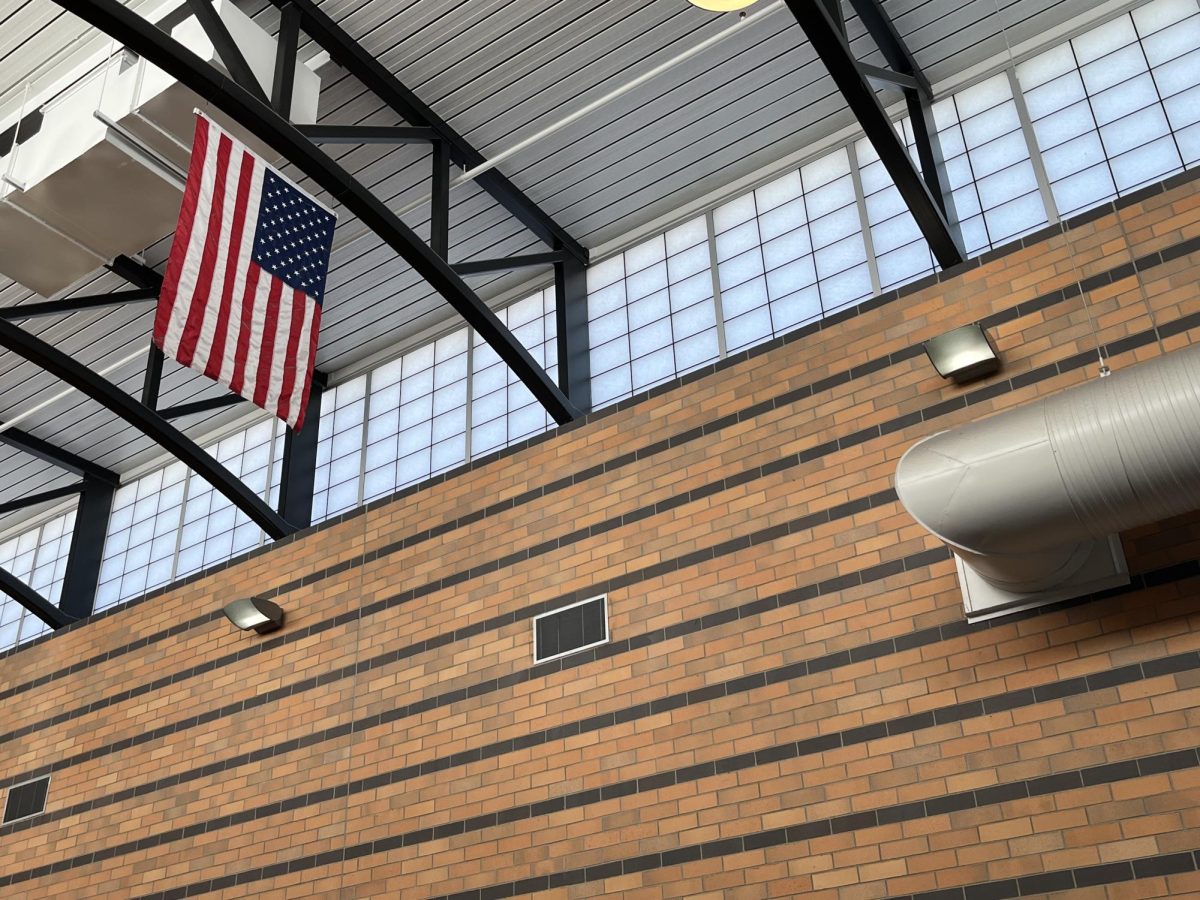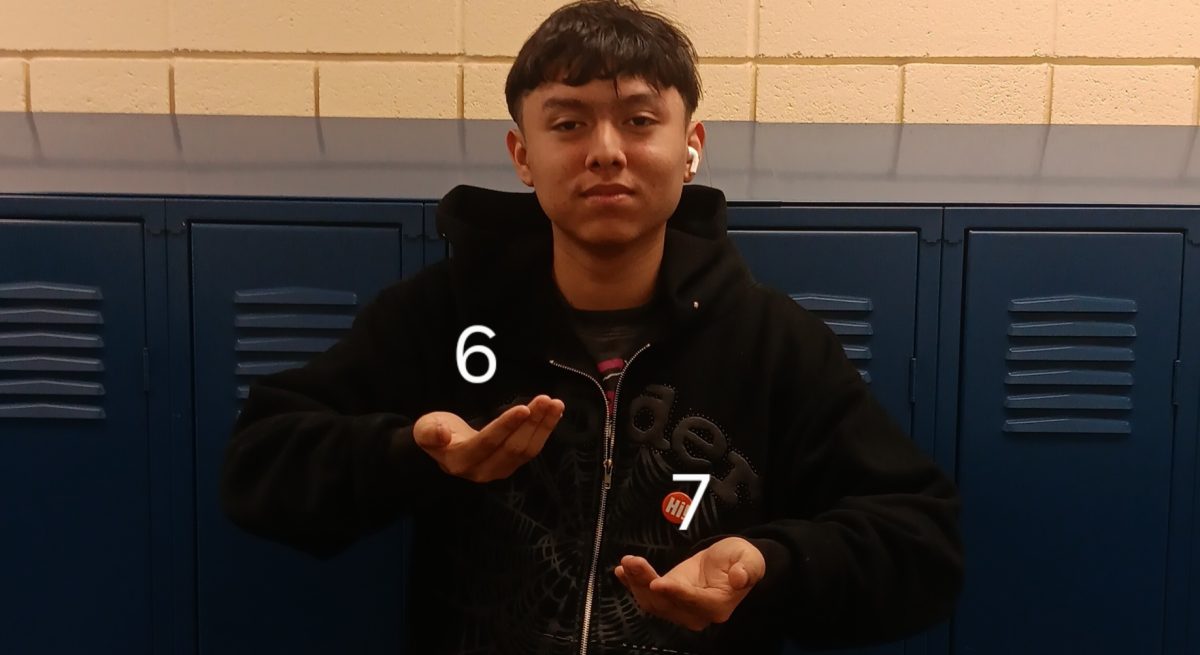Become a better “you” through sports

Jr. Danny Siterlit shooting a 3-pointer with the student section supporting.
April 17, 2023
The early morning workouts, the late bus rides after an away game, the practices right after school. Student-athletes go through a lot during their season. Sports can sometimes make a student’s life feel overwhelming, but the benefits are immense.
Relationships
One benefit gained from a school sport is the relationships athletes build. As these athletes work together daily, pushing each other, and watching each other work hard, relationships are built. Students learn to care for each other as they understand they are working towards the same goal. When students spend that much time together daily, there becomes a sense of belonging. Any differences between teammates are put to the side, as they both work to achieve the same goal
Relationships built with coaches are also beneficial. Building a relationship with coaches is extremely important if athletes want to succeed. It is necessary because athletes look up to their coaches and rely on them for technical, tactical, and personal advice. Coaches play other important roles too: they can be mentors, motivators, and someone to talk to when things are difficult in your sport, or in your personal life.
Character Building
Sports benefit students in their everyday lives as well. Through their sport, athletes learn work ethic, teamwork, perseverance, and more.
Cody Ryan is a teacher at West Ottawa High School who played multiple sports in high school.
“Sports helped me to be a better communicator. I was sort of a quiet kid growing up but playing sports helped me build confidence in communication and speaking to others, which is an important life skill,” said Ryan.
Sports require teamwork and cooperation which requires students to learn to speak up as the learn leadership skills The addition of leadership and social skills last long after their high school years.
Anthony Seville, an Algebra teacher at West Ottawa wrestled, competed in track and field, and played football benefited from his sports.
“Wrestling in particular taught me a lot about self-discipline because it required me to regulate my caloric intake during the season in order to make weight. I’d have to sacrifice my favorite foods for wrestling,” said Seville.
Problem-solving is another benefit of sports. As an athlete competes, there will be errors, and teams have to adjust to having a better chance of winning. Slumps are extremely common as well, when an athlete feels that they aren’t playing as well as usual, they have to make adjustments to their personal game to get back to their ideal performance.
“Football taught me problem-solving skills because every week we had to prepare for different styles of offenses and defenses being presented to us. We would have to figure out the strengths and weaknesses of teams we were to compete against and execute our plan on game day,” said Seville.
There’s no doubt that school sports can make it harder for students to have more free time, it provides the opportunity to learn to improve time management, with the possibility of games going late, or having to ride the bus home after an away game and not getting home until 10:00, students have to learn to make time for the other tasks that need to get done. Practices, games, and events make it difficult to be able to get schoolwork, or any other necessities done. Staying on top of homework, creating a calendar, and maintaining a consistent sleep schedule are all steps in successfully managing time.
Education
School sports give kids something to look forward to every day. Students will have the motivation to attend school, in hopes of being able to play their sport when the school day is over.
Many studies have shown that athletes had a higher percentage of day’s attendance, higher graduation rates, and performed better in core classes such as Math, Science, and Social Studies. Most schools have policies for a student-athlete to be eligible, which gives students a reason to stay true to their school work. Athletes are not generally smarter than nonathletes, but these policies make sure athletes take their studies seriously if they want to compete in their sport.
Physical and Mental Benefits
The mental health and physical aspect of sports is equally beneficial. Everyone knows sports will improve physical health but playing sports is also associated with lower rates of anxiety and depression, lower amounts of stress, higher self-esteem, increased cognitive performance, and many more.
“Playing sports allowed me to be in good physical and mental shape. I was always healthy physically and had strong self-esteem and self-efficacy because of the consistent physical activity in the sports I played,” Ryan said.
As students go through their high school years, sports could be extremely beneficial things to try. As physical health improves, and your confidence increases, friendships, mentors, mental health, and personality traits are all built.
“Sports also taught me how to fight through adversity. Life doesn’t always go the way you plan or the way you want it, but pushing through it and never giving up is sometimes the only choice you have,” said Ryan.
Sports not only benefit the cognitive and memory functions of the brain but helping students perform better in their academics. Traits such as self-discipline, time management, perseverance, and being able to communicate with others, are also benefits. The relationships athletes gain will also benefit them in the long run.



